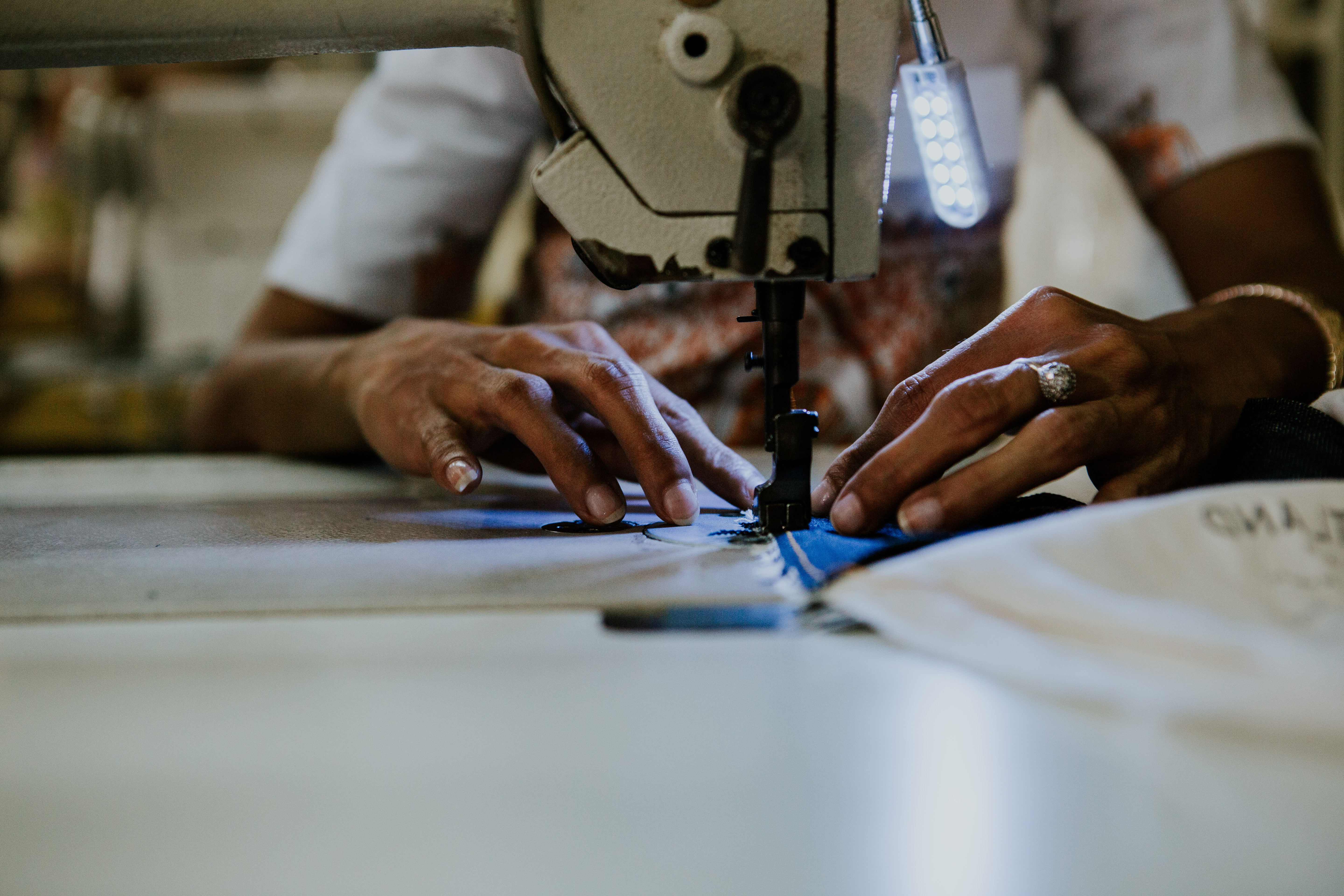I walk into the sewing house and am greeted by shy smiles and soft hellos as young women go about their work in the cool and airy renovated workshop.
There are several rolls of denim strewn across tables with women busily cutting and working at the fabric as they chatter away in their native tongue. The scene is a far cry from their former lives.
These happy workers are survivors of human trafficking, women who have been to hell and back, and now are grateful for the opportunity to carry out meaningful work and earn a living wage in a safe, comfortable and fun environment.
Outland Denim is an Australian company working in Cambodia, providing victims of trafficking with jobs – working as seamstresses and pattern-makers, producing high quality and eco-conscious denim pieces. But this is no third-world sweatshop. Started by Queenslander James Bartle after witnessing a young girl trafficked on the streets of Cambodia, it is a legitimate and ethical business that employs women and offers “training and employment opportunities to those young women in after-care healing from their trafficking or abuse trauma who were interested in tailoring/sewing as a career path”.

While Cambodia is awash with factories providing garments for the Western markets it is not just Outland Denim’s ethos that sets it apart from other companies and NGO’s working with underprivileged women. While other companies steer more towards creating T-shirts and jewellery, Communications Director Erica Bartle (James’ wife) explains they focus on denim, which is a more complex product to make and “jeans are a universal garment” that are having revival as the trends of athleisure die down in the market.
Erica says it is humbling and rewarding to see the difference the company is making to the lives of those that work for them, and the lives of their extended families. It is literally breaking the cycle.
“[One of our first employees] used her savings to provide for her extended family,” Erica says.
“Placing a roof on the family, home, paying someone to plant rice on their field, and buying her sister out of bondage.”
Trafficking in Cambodia
In Cambodia, trafficking is a huge problem facing its citizens. People of all genders and age groups are trafficked every day, sold into slavery by their own families, forced into sexual exploitation or handicapped in order to beg on the streets. Cambodia is a country that is considered a source, transit and destination country for trafficking and the 2016 Global Slavery Index estimates 256,800 Cambodians live in a state of modern slavery.
The mass genocide by the Khmer Rouge plunged Cambodia into poverty and more than 50 per cent of the population are aged under 25, putting strain on the economy due to a lack of employment opportunity. Due to its turbulent past Cambodia is one of the least developed countries in its area, and a lack of education and employment leaves its citizens (particularly women and children) in a vulnerable position.

In a country like Cambodia, which has a crowded market of people trying to provide help, it is important that companies like Outland Denim find credible NGOs that can help find work for women looking for employment opportunities.
Outland regularly works with the AFP and organisations like the International Organization of Migration to ensure the NGOs they work with are held to the highest of standards to get the best experiences possible for their employees.
Erica says it is of paramount importance that the NGOs understand their key desire is to provide women with careers that will eventually lead to them being financially independent.
“[We] only work with NGOs who operate a community-based reintegration model,” she says.
“This means that the women they care for and council are reintegrated back into their communities as quickly as possible. NGO councillors will thus continue to work with our staff for up to 12 months.”


